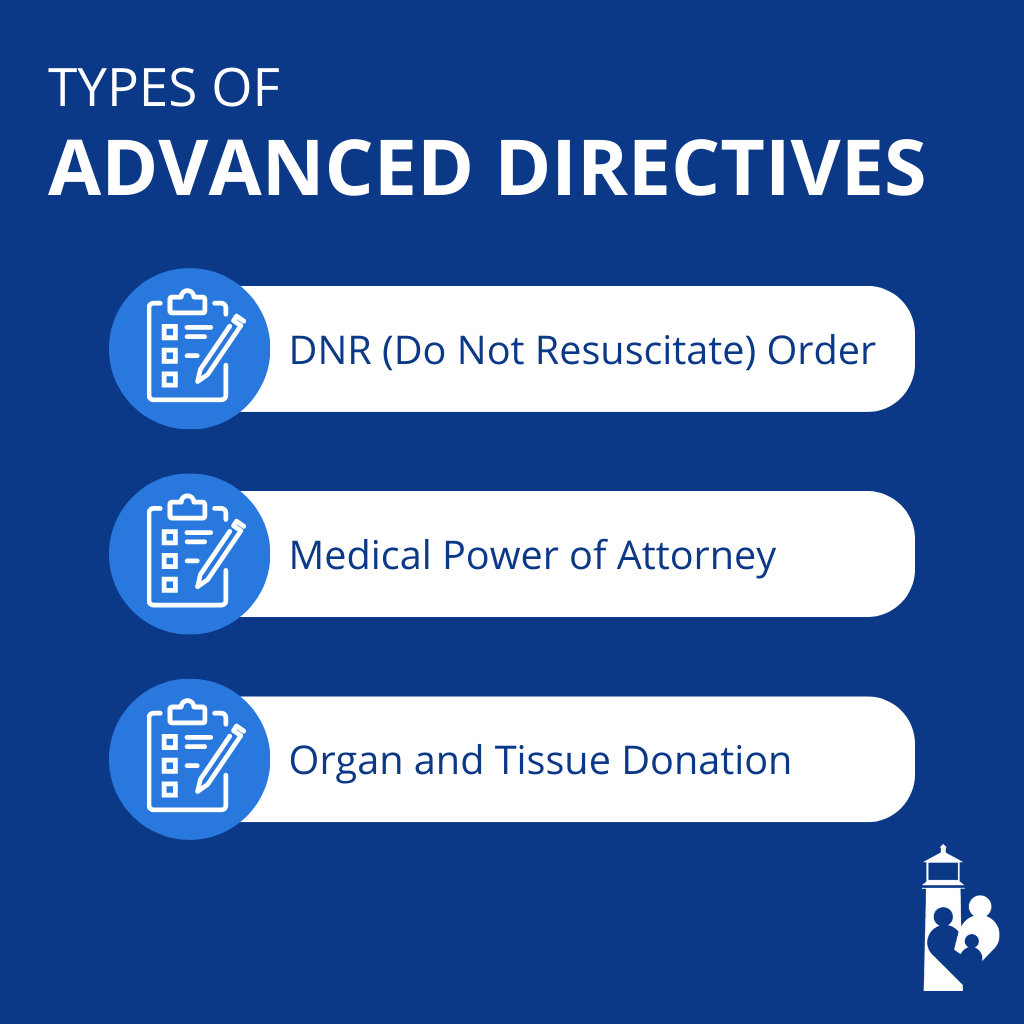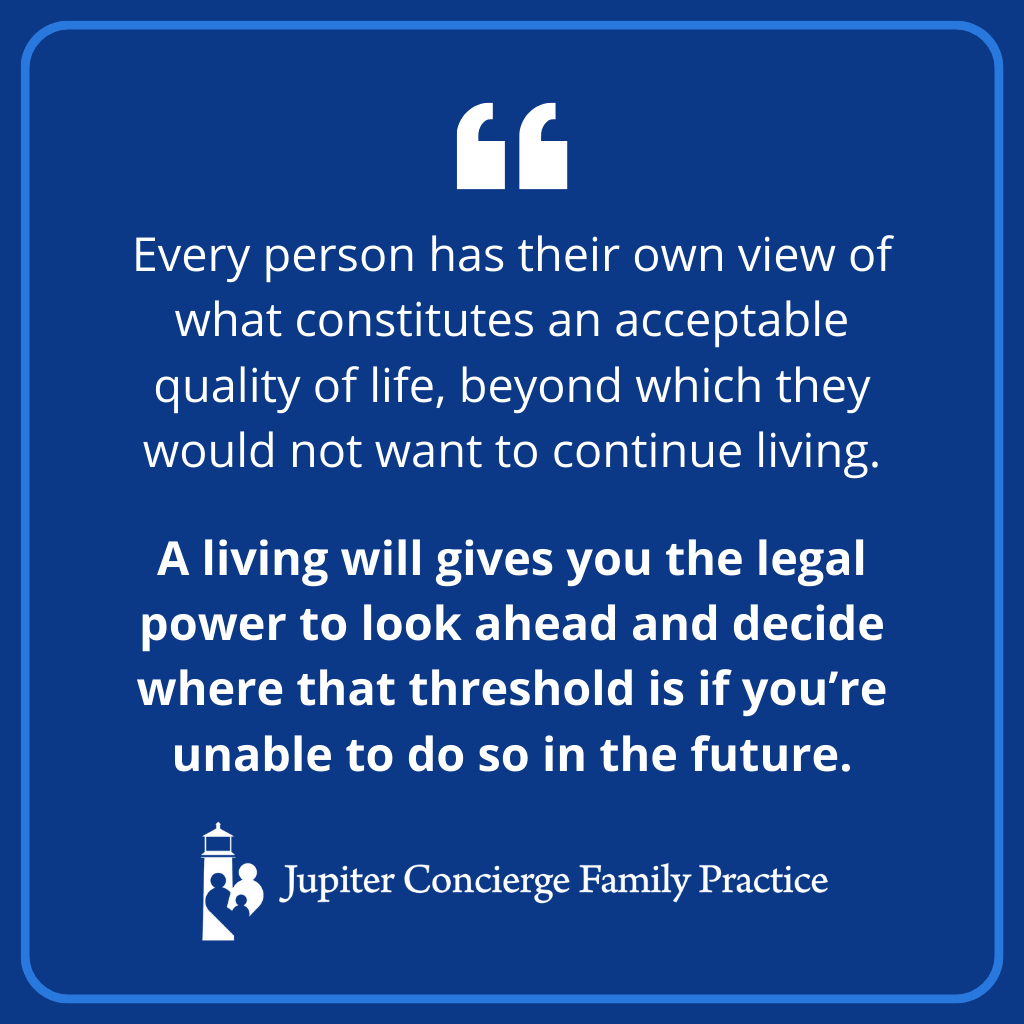
If you’ve been to a hospital or specialist appointment recently, you might have been asked whether you have an advance directive, such as a living will, in effect.
And, if you’re like many people, you perhaps spared a few moments to puzzle over the term before checking the “no” box.
But what is a living will? Why do medical facilities ask about them, and should you have one?
Living Wills: What Are They?
Our medical system is set up so that we prolong life at nearly all costs. However, this doesn’t necessarily prolong the quality of life.
Every person has their own view of what constitutes an acceptable quality of life, beyond which they would not want to continue living. A living will gives you the legal power to look ahead and decide where that threshold is if you’re unable to do so in the future.
For example, a living will would take effect if you became permanently unconscious, but mechanical interventions could keep your body alive. Though unable to say so at the time, you could communicate your wishes for what kind of medical care you would and would not like to receive via your living will.
Living wills remain powerless unless you can no longer communicate your decisions. They may include or accompany other types of advance directives outlining your future health wishes, such as:
- DNR (Do Not Resuscitate) Order — A DNR tells medical professionals not to administer CPR in the event that your heart or lungs stop functioning. This is reserved for very frail or elderly individuals whose health is beyond improvement.
- Medical Power of Attorney — Appoints a trusted person of your choosing to make medical decisions on your behalf if you become unable to do so.
- Organ and Tissue Donation — Informs medical professionals whether you wish to donate organs and tissue if the situation arises.
Who Needs a Living Will?
Anyone can set up a living will by following the legal guidelines in their state. There are even options to create the document online, and the cost isn’t generally prohibitive.
Though end-of-life concerns, especially the possibilities of accidents or serious illnesses, are trains of thought many of us would rather avoid, living wills can make a major difference for you and your family.
If you would rather not go on in a state of life that has no hope of getting better — long-term life support, for example — you need a living will. Your living will allows you to make calm, considered decisions ahead of time about what kind of treatments and care you’re comfortable receiving in such a case. And, perhaps the strongest incentive, a living will removes the burden of end-of-life decision-making from your family and loved ones.
This document allows your next of kin to follow your wishes by withholding care that would otherwise keep you alive, but not in a state you’d find acceptable. They don’t have to agonize over the options without your input because you’ve made your intentions perfectly — and legally — clear.
Misconceptions About Living Wills
Some may hesitate to create a living will due to a variety of fears that stem from misconceptions.
Most commonly, they worry a living will could mean medical personnel won’t save their life if something happens to them.
The truth is that a living will ONLY comes into effect if you enter what’s believed to be an irreversible process. For example, pneumonia and other infections are treatable and, often, reversible with antibiotics. No doctor would withhold such treatment from you on the basis of a living will. Plus, you would likely be conscious at the time anyway, rendering the living will moot.
Alternatively, a serious car accident might render you unconscious but not necessarily permanently incapacitated. Medical professionals will still take life-saving measures in the event of such a sudden trauma. A living will would come into effect only if you remained unable to communicate AND required ongoing medical intervention to sustain your life.
Another misconception is that living wills are irreversible. You are perfectly able to renege on your living will should you change your mind.
Some worry that foregoing life-sustaining measures via a living will is against their religion. If you have this concern, I recommend speaking with a trusted religious leader about the matter for direction.
Should You Have a Living Will? Final Thoughts
Creating a living will is ultimately your decision. But it’s an important one, and a responsible thing to do to help the people you care about.
The time to set up a living will is when you’re healthy and (obviously) before you need it. It’s never too early to set up a living will. Even if you’re young and healthy, accidents can happen at any time in life.
Consider a living will as part of your general estate planning. And remember, this little document can give you a say in your future health care and save your loved ones a world of difficulty and guilt regarding end-of-life decision-making.


